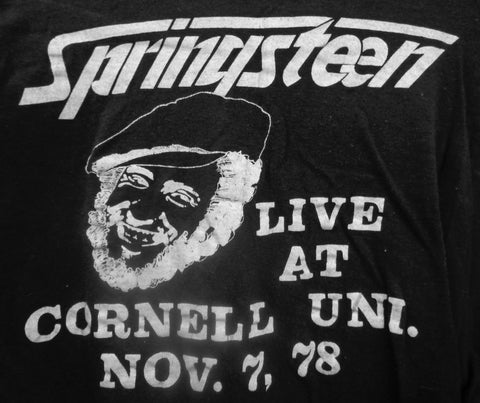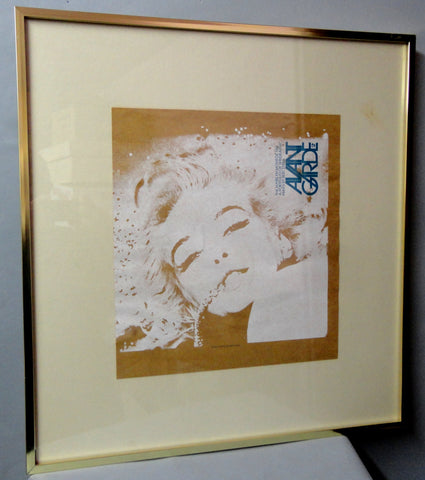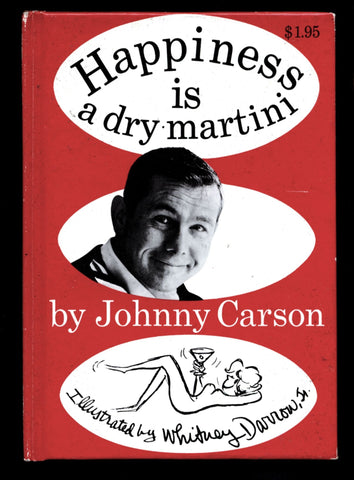Richard Wagstaff Clark (November 30, 1929 – April 18, 2012) was an American radio and television personality, television producer and film actor, as well as a cultural icon who remains best known for hosting American Bandstand from 1957 to 1987.
As host of American Bandstand, Clark introduced rock & roll to many Americans. The show gave many new music artists their first exposure to national audiences, including Ike and Tina Turner, Smokey Robinson and the Miracles, Stevie Wonder, Prince, Talking Heads, Simon & Garfunkel and Madonna. Episodes he hosted were among the first in which blacks and whites performed on the same stage, and likewise among the first in which the live studio audience sat without racial segregation. Singer Paul Anka claimed that Bandstand was responsible for creating a "youth culture." Due to his perennial youthful appearance and his largely teenaged audience of American Bandstand, Clark was often referred to as "America's oldest teenager" or "the world's oldest teenager"
In 1952, Clark moved to Drexel Hill, Pennsylvania, a suburb of Philadelphia, where he took a job as a disc jockey at radio station WFIL, adopting the Dick Clark handle. WFIL had an affiliated television station (now WPVI) with the same call sign, which began broadcasting a show called Bob Horn's Bandstand in 1952. Clark was responsible for a similar program on the company's radio station, and served as a regular substitute host when Horn went on vacation...
Bandstand was picked up by the ABC television network, renamed American Bandstand, and debuted nationally on August 5, 1957. The show took off, due to Clark's natural rapport with the live teenage audience and dancing participants as well as the non-threatening image he projected to television audiences. As a result, many parents were introduced to rock and roll music. According to Hollywood producer Michael Uslan, "he was able to use his unparalleled communication skills to present rock 'n roll in a way that was palatable to parents."
In 1958, The Dick Clark Show was added to ABC's Saturday night lineup. By the end of year, viewership exceeded 20 million, and featured artists were "virtually guaranteed" large sales boosts after appearing. In a surprise television tribute to Clark in 1959 on This Is Your Life, host Ralph Edwards called him "America’s youngest starmaker," and estimated the show had an audience of 50 million.
Clark moved the show from Philadelphia to Los Angeles in 1964. The move was related to the popularity of new "surf" groups based in Southern California, including The Beach Boys and Jan and Dean. The show ran daily Monday through Friday until 1963, then weekly on Saturdays until 1987.
In the 1960s, the show's emphasis changed from merely playing records to including live performers. During this period, many of the leading rock groups of the 1960s had their first exposure to nationwide audiences. A few of the many artists introduced were Ike and Tina Turner, Smokey Robinson and the Miracles, The Beach Boys, Stevie Wonder, Prince, Simon and Garfunkel, Jerry Lee Lewis, Buddy Holly, Johnny Cash, Sam Cooke, Fats Domino and Chubby Checker.
During an interview with Clark by Henry Schipper of Rolling Stone magazine in 1990, it was noted that "over two-thirds of the people who've been initiated into the Rock and Roll Hall of Fame had their television debuts on American Bandstand, and the rest of them probably debuted on other shows [they] produced." During the show's lifetime, it featured over 10,000 live performances, many by artists who would have been unable to appear anywhere else on TV, as the variety shows during much of this period were "antirock." Schipper points out that Clark's performers were shocking to general audiences:
The music establishment, and the adults in general, really hated rock and roll. Politicians, ministers, older songwriters and musicians foamed at the mouth. Frank Sinatra reportedly called Elvis Presley a "rancid-smelling aphrodisiac."
Clark was therefore considered to have a negative influence on youth, and was well aware of that impression held by most adults: I was roundly criticized for being in and around rock and roll music at its inception. It was the devil's music, it would make your teeth fall out and your hair turn blue, whatever the hell. You get through that.[wiki]
--------------------------------------------------------------------------------
▲ Use TITLE, KEYWORD, TERM, CREATOR, ARTIST, NAME or CHARACTER name in our STORE search tab to find other items.
▲ Additional images & information available upon request
#sashakeen #qualitycomicsamerica @sashakeen @qualitycomicsamerica
World.



